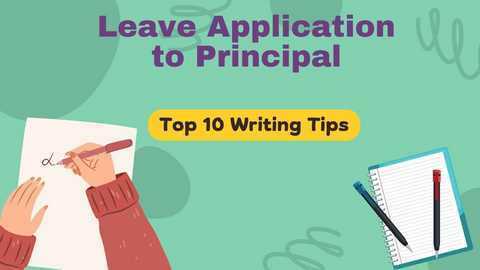Acknowledgements are an important aspect of academic writing, allowing authors to express gratitude and recognition to individuals and organizations that have supported them in their work.
However, knowing when and how to write an acknowledgment can be tricky.
In this article, we’ll provide you with the top 12 tips for writing the best acknowledgements and some practical examples to help you get started.
How to Write an Acknowledgement | Top 12 Tips With Examples

Tip #1: Consider the Purpose of Your Work
The first thing to consider when deciding whether or not to write acknowledgments is the purpose of your work.
Suppose you’re writing a research paper, thesis, or dissertation.
In that case, you’re generally expected to include an acknowledgements section to thank those who helped you along the way.
However, if you’re writing an article for a magazine or a blog post, acknowledgements may not be necessary.
Example: If you’re writing a research paper on the effects of climate change on biodiversity, you might want to include an acknowledgment section to thank your research team, funding agencies, and the organizations that provided data.
Tip #2: Think About Who Deserves Recognition
When writing an acknowledgement, it’s important to consider who deserves recognition for their contributions.
This might include your research team, mentors, funding agencies, family members, or friends who supported you throughout the process.
Example: If you’re writing a thesis on the impact of social media on mental health, you might want to thank your thesis advisor, research assistants, family, and friends for their support and encouragement.
Tip #3: Be Personal and Specific in Your Acknowledgement
When writing your acknowledgement, it’s important to be personal and specific.
This means avoiding generic thank-yous and taking the time to acknowledge each individual’s contributions.
Example: Instead of writing, “I would like to thank my research team for their support,” you might write, “I would like to thank John for his help with data analysis, Sarah for her assistance with literature review, and Michael for his feedback and suggestions throughout the research process.”
Avoid generic and impersonal statements, and show that you truly appreciate each individual’s contributions.
Example: “I am deeply grateful to my mentor, Dr. Johnson, for his tireless support and guidance throughout this project. His expertise and encouragement have been invaluable, and I could not have done this without him.”
Tip #4: Keep Your Acknowledgement Concise
While it’s important to be personal and specific in your acknowledgements, it’s also important to keep it concise.
Your Acknowledgement should be no more than a page or two.
They should focus on the most important individuals and organizations contributing to your work.
Example: If you’re writing a dissertation, your acknowledgments might include your research team, mentors, funding agencies, and family members, but you don’t need to include every single person who offered you encouragement along the way.
Tip #5: Be Genuine and Sincere
When writing an acknowledgement, being genuine and sincere is important.
Acknowledgements are an opportunity to express gratitude and appreciation, so it’s important to write them heartfelt and authentically.
Example: Instead of simply listing names and titles, you might write, “I would like to express my sincere gratitude to my thesis advisor, Dr. Smith, for her unwavering support, guidance, and mentorship throughout this process.
I could not have completed this work without her dedication and expertise.”
Tip #6: Be Inclusive While Writing Your Acknowledgement
When writing an acknowledgement, it’s important to include everyone who contributed to your work, even if their contributions were small.
This shows that you value and appreciate all forms of support.
Example: “I want to acknowledge the invaluable contributions of my lab assistants, Jane and Mark, as well as the janitorial staff who kept the lab clean and organized.”
Acknowledgements can also be an opportunity to pay tribute to those who inspired you to pursue your work.
This shows that your work is part of a larger narrative and that you are building upon the legacy of those who came before you.
Example: “I would like to thank the pioneering work of Dr. Smith, whose research laid the foundation for my own. Without his groundbreaking discoveries, my work would not have been possible.”
Tip #7: Acknowledge Unexpected Sources of Support
In addition to the usual suspects, such as mentors and funding agencies, unexpected sources of support can also be acknowledged in your writing.
Example: “I would like to thank my yoga teacher, Sarah, for helping me manage my stress during the writing process.”
Tip #8: Show How Contributions Were Beneficial
In your acknowledgements, explain how each individual or organization’s contributions benefited your work.
This shows that their contributions were meaningful and not taken for granted.
Example: “I am grateful to my thesis advisor, Dr. Lee, for her insightful feedback and guidance, which greatly improved the quality of my work.”
Tip #9: Use Humor and Creativity in Your Acknowledgement
Acknowledgements don’t have to be dry and boring.
Using humor and creativity can make your writing more engaging and enjoyable to read.
Example: “To my cat, Whiskers, thank you for keeping me company during those late-night writing sessions. Your purring was a constant source of comfort.”
Tip #10: Be Mindful of Cultural and Gender Differences
When writing your acknowledgement, be mindful of cultural and gender differences.
Consider how different cultures express gratitude and tailor your writing accordingly.
Example: “I would like to thank my parents for their unwavering support and encouragement throughout this journey.
In our culture, expressing emotions can be challenging, but your love and guidance never faltered.”
Tip #11: Express Gratitude for Personal Growth
Writing acknowledgments is not just about thanking others for their support but also recognizing how you have grown through the process.
Expressing gratitude for personal growth shows humility and a willingness to learn.
Example: “I want to thank my research collaborators for challenging me to think outside the box and helping me grow both as a researcher and a person.”
Tip #12: Don’t Forget Your Loved Ones
Amid academic and professional achievements, it’s easy to forget about the people closest to you.
Acknowledging loved ones shows that you recognize their sacrifices and support and that they also played a crucial role in your success.
Example: “I want to thank my spouse, John, for his unwavering support and encouragement. Your love kept me going through the long nights and difficult moments.”
Example – Acknowledgement for a Project
I am immensely grateful to all the individuals whose tireless efforts and cooperation enabled us to achieve the objectives of this project.
I extend my heartfelt gratitude to all those who contributed in their unique ways.
Primarily, I express my gratitude to my supervisor [Name], whose commendable guidance, sensible expertise, and unwavering support were pivotal in leading us through the intricate pathways of this project.
Their astute feedback and unrelenting pursuit of excellence helped us overcome the myriad challenges and accomplish our goals.
I would also like to acknowledge the invaluable contributions of [Name] and [Name] in their respective fields.
Their profound insights and unparalleled expertise proved to be instrumental in shaping the trajectory and scope of our work.
I am truly grateful to my colleagues [Name], [Name], and [Name], whose tireless efforts, unwavering commitment, and dogged determination were indispensable in making this project a resounding success.
Their exceptional work ethic and diligence, often surpassing the call of duty, ensured that every task was executed to the highest standards.
I am indebted to our industry partners [Name], [Name], and [Name], whose generous support, critical resources, and unparalleled expertise empowered us to conduct our research with the utmost efficacy.
Their unwavering collaboration and cooperation were crucial in realizing our project objectives.
I express my sincere appreciation to the participants of this project, who generously devoted their time and energy to support our research.
Their invaluable contribution, data, and insights were instrumental in accomplishing our project goals.
I would like to thank the administrative and technical staff at [Name of Institution], whose dedicated assistance and support were indispensable in ensuring the seamless execution of this project.
Their unwavering enthusiasm and eagerness to assist us in every possible way were deeply appreciated.
Lastly, I would like to express my heartfelt gratitude to my family and friends, whose true love and unwavering encouragement gave me the fortitude and focus to pursue my academic and professional aspirations.
Their steadfast support and understanding made this project a reality.
In summary, I extend my deepest appreciation to everyone who contributed to this project in any capacity.
Without their steadfast dedication, unwavering support, and relentless cooperation, we could not have accomplished our objectives and made this project successful.
Working alongside such exceptional individuals was a privilege, and I am proud of what we have achieved together.
Conclusion
In conclusion, writing an acknowledgment is an important part of academic writing, providing authors with a way to express gratitude and recognition to those who supported them in their work.
By following these top 12 practical tips you can write acknowledgments expressing gratitude and showing your humanity, creativity, and sincerity.
Remember, acknowledgements are not just a formality but an opportunity to recognize and honor those who have helped you.




